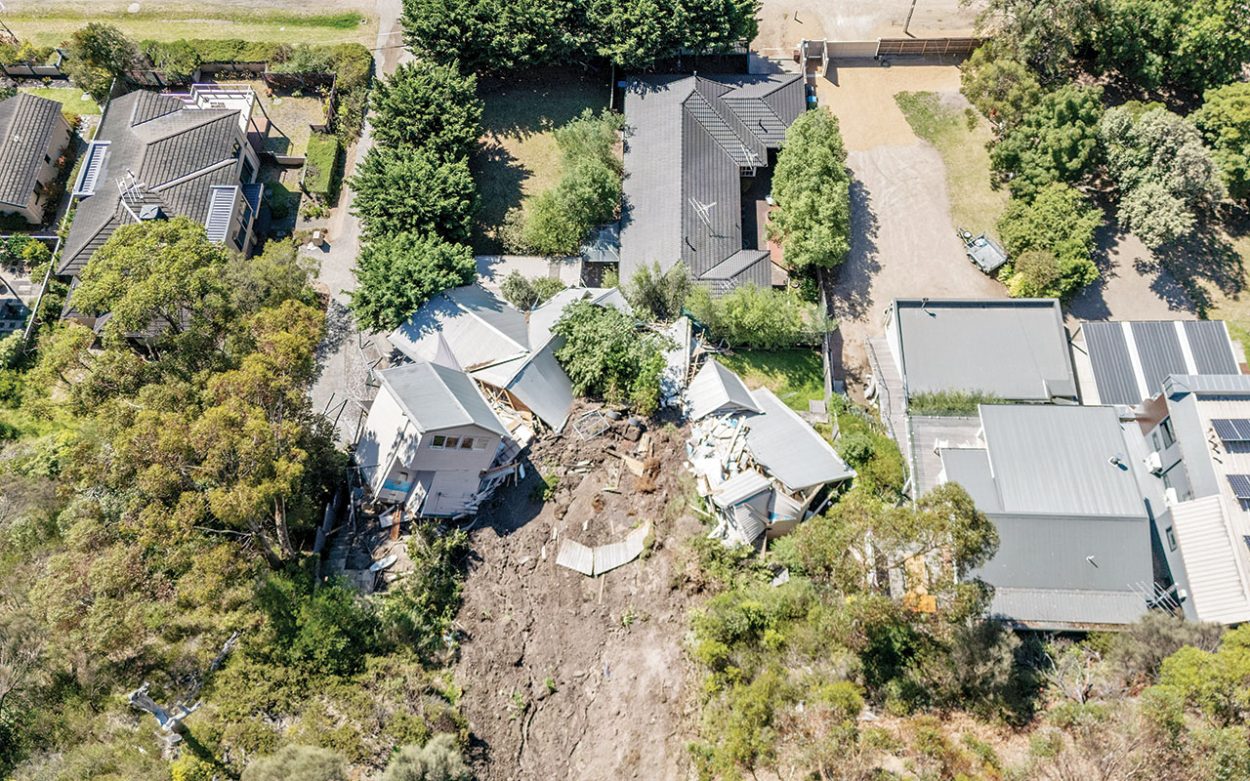MORNINGTON Peninsula Shire councillors have approved a three per cent rate increase amid “unprecedented pressures” including a newly estimated $8m to deal with the McCrae landslide recovery. Mayor Cr Anthony Marsh said at least $75 from every household would be needed to help pay for the 14 January landslide event.
Councillors unanimously approved the rate increase at their 8 April meeting, which would generate an extra $50 per household in revenue on average. But Marsh said this was just two thirds of the cost of addressing the landslide recovery which did not consider inflation or cost increases. The shire has already spent $3m to manage the landslide with a further $5m needed to spend on emergency related works. “That is an unforeseen event, and like any fiscally responsible organisation would do, you change your understanding and the way you respond to that based on circumstances,” Marsh said.
Residents were forced to evacuate their homes with a council worker taken to hospital after a house slid down the hill. Site investigations by geotechnical engineers have been ongoing, with an exclusion zone still in place, and eight property owners still unable to return to their homes. The state government has launched a $3.14m inquiry into the landslide but has yet to make any funding commitment to assist the shire in responding to the event.
Marsh has previously conceded that the landslide was a “significant burden” on ratepayers with $29 per household having so far been spent on the recovery. The rate cap of three per cent (up from 2.75 per cent in 2024-25) has been set for the next financial year under the state government’s Fair Go Rates System.
Councillors voted unanimously in support of the increase which will see the shire generate $5.2m for the 2025-26 annual budget – a sum it would have lost had the cap not been adopted. According to the shire, its draft operating income for 2025-2026 is $289m which is an increase of four per cent from the 2024-2025 adopted budget.
“It is being recommended by officers that this full cap is adopted for the 2025-2026 financial year in order to address rising costs and ongoing financial sustainability,” a shire report said. “Shire officers have also discussed with councillors the intention to review the differential rating strategy during 2025-2026 ahead of the 2026-2027 budget process. As a result, no changes are being recommended for next financial year.” A differential rating strategy is where councils set different rates for different classes of property. However, councillors voted for the rating strategy to be reviewed for the 2026-27 budget to ensure it “reflects principles of equity, transparency, and fairness across all property classifications”.
Currently, owners of vacant residential, industrial and commercial land are charged 40 per cent more in rates while agricultural land users pay 65 per cent less. Marsh raised concerns of illegitimate farming occurring on the peninsula that were “getting massive subsidies to rates” compared to hobby farms.
He also supported councillors voting for a minor nature strip work fee to be removed from the budget, saying minor works should be “encouraged, not penalised or disincentivised” such as planting trees, which sees the shire generate about $2000 a year.
Marsh said while he voted to support the rate increase, he was determined for council to freeze rates in future and work towards “delivering value for money and local tangible outcomes for our community”.
Deputy mayor Paul Pingiaro acknowledged community members would be disappointed by the rate increase, which was a “decision that we don’t make lightly”, particularly with cost-of-living pressures.
“This is not about blindly passing on costs,” he said. “Unfortunately, council is not in the position to remain financially viable if rates were frozen. We are operating under unprecedented pressures, rising operational costs, growing community expectations and increasing responsibilities being handed down from other levels of government without the funding to match.”
Cr Bruce Ranken noted the shire had the eighth lowest rates out of 79 councils in Victoria, which was about $305 less per ratepayer or $32m less in revenue.
First published in the Mornington News – 16 April 2025




